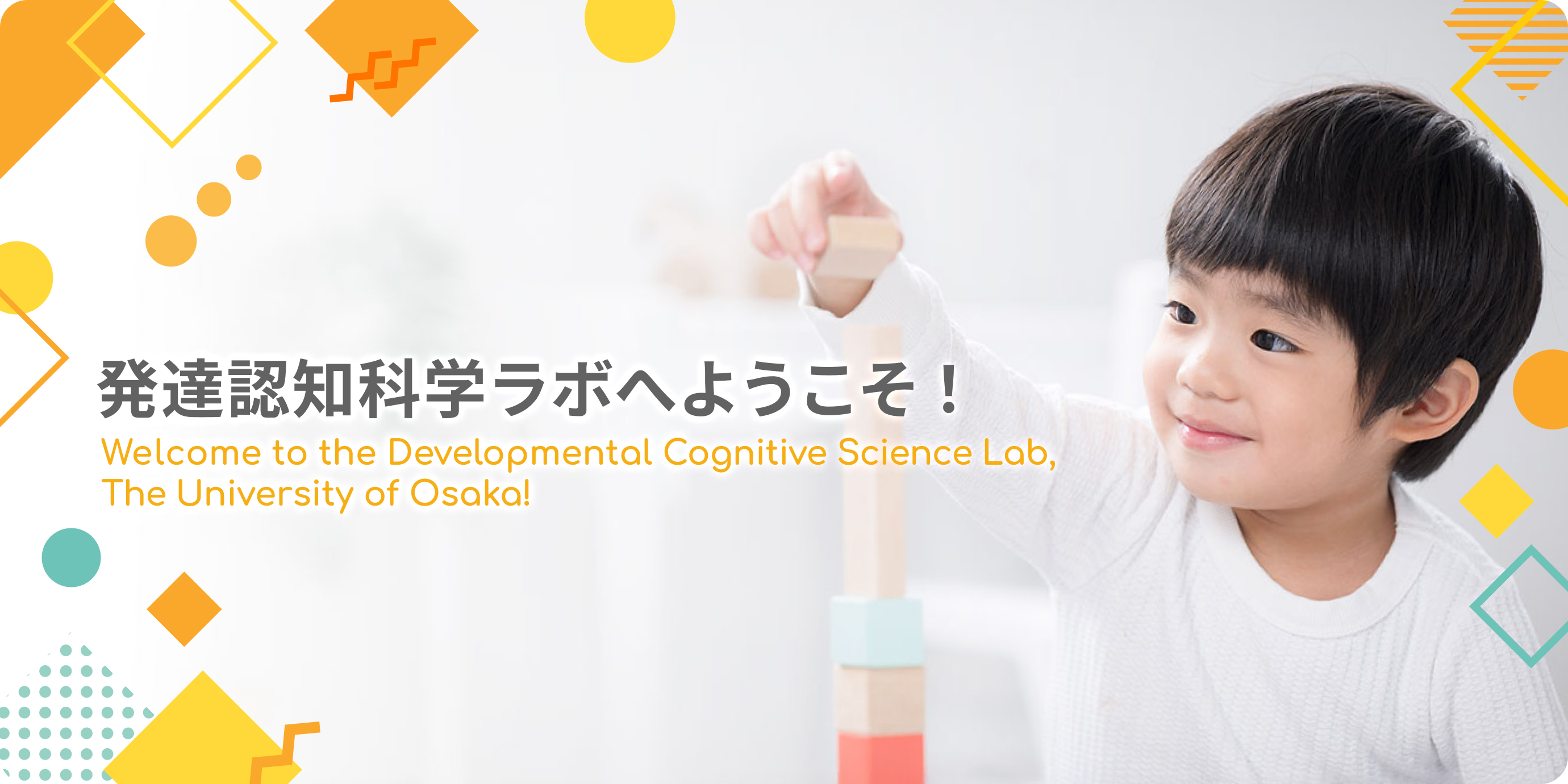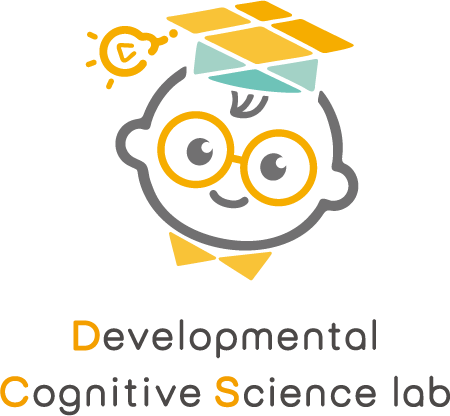
Join us in the scientific investigation of human development!
We warmly welcome motivated undergraduate and graduate students, as well as researchers, who are eager to take on the challenge of uncovering the mechanisms of early development and the social factors that shape it. Prior experience in human developmental research is not required. We especially encourage applicants with backgrounds in experimental psychology (particularly in perception and behavior), or in cognitive science and informatics fields such as machine learning and natural language processing.
Recommended Books・Resources・Journals
Textbooks (in Japanese)
- Kai, K., & Saitō, S. (Eds.). (2018). ベーシック発達心理学 [Introduction to developmental psychology]. University of Tokyo Press. ISBN 978-4130121132
- Imafuku, M., & Kanakogi, Y. (Eds.). (2025). エッセンシャル教育心理学 [Essential educational psychology]. Daigaku Kyoiku Shuppan. ISBN 978-4866923475
- Hagihara, H. (2024). 子どもとめぐることばの世界 [Exploring the world of words with children]. Minerva Shobo. ISBN 978-4623097210
- Kobayashi, H., & Sasaki, M. (Eds.). (2008). 新・子どもたちの言語獲得 [New perspectives on children’s language acquisition]. Taishukan Publishing. ISBN 978-4469213188
If you're looking for recommended textbooks written in English, please feel free to ask our faculty member individually.
We also encourage our students to become familiar with international journal articles, particularly recent findings from the past one to two years, with a focus on developmental psychology. In our lab, we support this by offering guidance through paper reading groups and discussions. Below are examples of journals we've read together in the lab and recommend.
- General Science: Nature / Science / Nature Human Behaviour / Nature Communications / Science Advances / PNAS / Current Biology / Royal Society B
- General Psychology: Psychological Science / Cognition / Journal of Experimental Psychology
- Developmental Journals: Developmental Science / Child Development / Developmental Psychology / Journal of Experimental Child Psychology / Infancy / Cognitive Development / Social Development
Academic Progression
Lab Curriculum
- Third-Year Undergraduate Students
Students acquire foundational knowledge and skills necessary for research in developmental cognitive science and developmental support. Activities include reading English academic papers, learning statistical analysis, designing experimental plans, and participating in ongoing research projects. - Fourth-Year Undergraduate Students
Students select a research topic and carry out their own study, either within the university or in collaboration with partner institutions. They present their progress and engage in discussions during lab seminars, which help deepen and refine their research. The final outcome is submitted as an undergraduate thesis. - Master’s Program
While the specific research path may vary depending on whether the student plans to continue into a doctoral program, each student selects a research topic and carries out their study within the university or in collaboration with partner institutions. In some cases, students may also participate in ongoing lab projects. Over the course of the two-year program, they conduct research, present their findings at academic conferences both in Japan and abroad, and compile the results into a master’s thesis. - Doctoral Program
In the doctoral program, students further refine their research focus and advance their individual projects. They may also contribute to lab-wide initiatives and take on mentoring roles to support junior members of the lab. Over the course of three years (in most cases), students carry out independent research, present their findings at academic conferences in Japan and internationally, and engage in outreach activities. The final results are compiled into a doctoral dissertation.
Lab Events
We regularly hold events such as journal clubs focused on reading English-language papers, lab seminars, retreats, and community outreach.
Eligibility for the Certified Public Psychologist National Examination
At the DCS Lab, students can qualify to take Japan’s Certified Public Psychologist National Examination by earning the necessary credits through both the undergraduate and master’s programs. This includes completing 450 hours of practical training, conducted both on and off campus. Activities carried out through our lab’s Developmental Assessment and Support Unit, as well as at affiliated institutions, may be applied toward this practicum requirement.
JSPS DC / PD Fellowships
If you are interested in applying for a Doctoral Course (DC) or Postdoctoral (PD) Fellowship from the Japan Society for the Promotion of Science (JSPS), please feel free to contact us. Prior experience in human developmental research is not strictly required. We particularly welcome applicants with backgrounds in experimental psychology (especially in areas related to perception and behavior), as well as those with expertise in cognitive science or informatics, including machine learning and natural language processing.
About Our Lab Logo

Child Scientist
Our logo features a baby wearing a distinctive hat and glasses. The light bulb symbolizes the spark of insight at the heart of scientific discovery, with a design that aims to be both approachable and memorable. It blends a question mark (?) and an exclamation mark (!), representing the curiosity and inspiration that drive our research.
The design of the hat evokes the idea of dots connecting into lines—symbolizing how a single idea can lead to broader understanding, gradually revealing a more colorful and meaningful view of the world. The baby’s shirt collar adds a subtle accent, emphasizing the role of our young participants as “child scientists” in our lab.
Our Child Scientist Lab logo received the Excellence Award in the “Most Stan-Worthy on Social Media” (SNS de oshitaku naru SNSで推したくなる) category at the Biz-Up! Logomark of the Year 2025. See details here!


